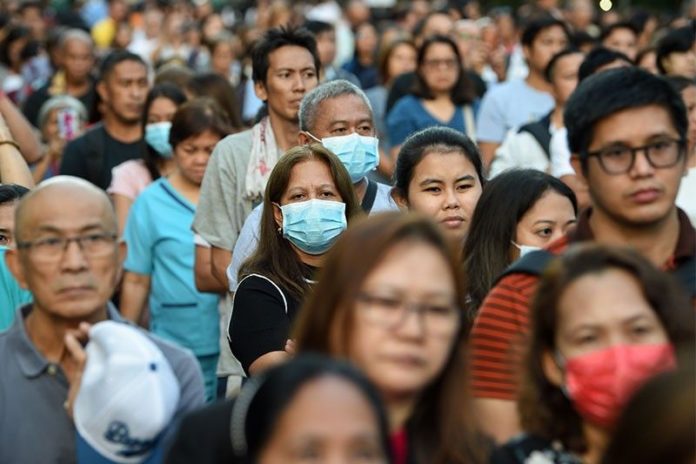BEIJING, Feb 26, 2020 (BSS/AFP) – The new coronavirus epidemic swelled on
Wednesday with cases in South Korea surging past 1,000 after deaths soared in
Iran and infections appeared in previously untouched countries, prompting
dire warnings that the world was not ready to contain it.
The virus has rapidly spread in parts of Asia, Europe and the Middle East,
even as the number of deaths and fresh cases decline at the disease epicentre
in China.
Towns and cities have been sealed off in an attempt to stop the contagion,
while hotels in the Canary Islands and Austria were locked down on Tuesday
because of suspected cases.
In Iran, which has reported 15 deaths out of nearly 100 infections, even
the country’s deputy health minister Iraj Harirchi said he had contracted the
virus.
At the World Health Organization headquarters in Geneva, Bruce Aylward, who
headed an international expert mission to China, hailed the drastic
quarantine and containment measures taken by the country.
But he told reporters that other nations were “simply not ready” to contain
the outbreak.
“You have to be ready to manage this at a larger scale… and it has to be
done fast,” Aylward said.
The virus has killed 2,715 people and infected over 78,000 in China. There
were 52 more deaths reported on Wednesday — the lowest in three weeks —
with no fatalities outside the epicentre in central Hubei province.
The National Health Commission also reported a drop in new infections to
406, with only five outside Hubei — a figure that will boost confidence that
the rest of the country is containing the epidemic.
In the rest of the world, there have been more than 40 deaths and 2,700
cases.
The disease has now reached dozens of countries, with Austria, Croatia and
Switzerland the latest to declare cases.
The epidemic’s disruption has also grown, with stock markets tumbling
around the world, restrictions imposed on travellers and sporting events
cancelled.
The WHO, the UN health agency, has called for countries to “prepare for a
potential pandemic” — a term used to describe an epidemic that spreads
throughout the world.
Poor countries are particularly at risk, the WHO has warned.
– South Korea surge –
South Korea reported 169 new infections on Wednesday, raising its total
tally to 1,146 — by far the largest outside China — while an 11th person
died.
The vast majority — 90 percent — of the new infections were in Daegu, the
country’s fourth-largest city and the epicentre of the outbreak, and the
neighbouring province of North Gyeongsang.
The streets of Daegu — which has a population of 2.5 million — have been
largely deserted for days, apart from long queues at the few shops with masks
for sale.
Authorities urged the public to exercise extra caution, advising citizens
to stay home if they have a fever or respiratory symptoms.
China quarantined 94 air passengers arriving in Nanjing from Seoul after
three people, all Chinese, on the flight were discovered to have fevers on
Tuesday.
– Iran, Italy hotspots –
In the Middle East, Iran has emerged as a major hotspot, with three more
people dying from the COVID-19 disease on Tuesday.
The country has been scrambling to contain the epidemic since last week
when it announced its first two deaths in Qom, a centre for Islamic studies
and pilgrims that attracts scholars from abroad.
US Secretary of State Mike Pompeo, whose country came to the brink of war
with Iran earlier this year, said Washington is deeply concerned Tehran “may
have suppressed vital details” about the outbreak there.
Gulf countries announced new measures to cut links with Iran in an attempt
to stop the spread.
Meanwhile Italy — which has reported 10 deaths and more than 300 cases —
has locked down 11 towns and ordered Serie A football games to be played to
empty stadiums.
A young man who returned to Croatia from Italy became the first case in the
Balkans region.
In the United States, which has a few dozen cases, health authorities urged
local governments, businesses, and schools to develop plans like cancelling
mass gatherings or switching to teleworking as the country braces for the
virus to spread further.



